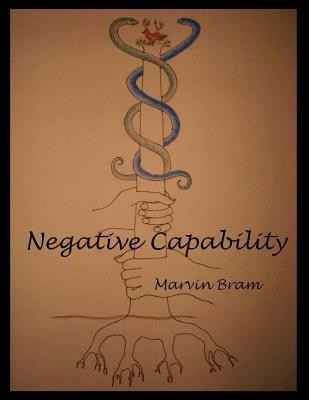
- We will send in 10–14 business days.
- Author: Marvin Bram
- Publisher: Marvin Bram
- Year: 2011
- Pages: 242
- ISBN-10: 0615570372
- ISBN-13: 9780615570372
- Format: 21.6 x 28 x 1.3 cm, minkšti viršeliai
- Language: English
- SAVE -10% with code: EXTRA
Reviews
Description
The term "negative capability" was coined early in the nineteenth century by John Keats to describe a state of mind. To be in the state of negative capability is to "become" other persons, other entities of many kinds, and to live inside those others, in so doing enlarging one's own consciousness. It is preeminently the state in which poetry is possible. NEGATIVE CAPABILITY begins with a play, "Keats at Thirty." John Keats died at twenty-five without beginning his life as Shakespeare's true successor and without the love of a woman worthy of him. "Keats at Thirty" gives him his first great dramatic subject and exactly such a woman. A second play, "Equifinality," examines the possibilities of negative capability and the multiverse hypothesis for the lives of three friends in our own century. "Equifinality" is followed by a long story, "Nora Klein and World Peace," in which a young woman gifted in negative capability uses her gift to create a language of peace and an institution that embodies that language. Three essays follow, which provide a rich historical context for negative capability and go on to suggest policy initiatives that apply negative capability to a host of contemporary institutions. The aim of NEGATIVE CAPABILITY is to stimulate the enlargement of the reader's consciousness through drama, story, and essay. Enlargement is personal pleasure; at the same time, enlargement is one's contribution to a humane society.
- Author: Marvin Bram
- Publisher: Marvin Bram
- Year: 2011
- Pages: 242
- ISBN-10: 0615570372
- ISBN-13: 9780615570372
- Format: 21.6 x 28 x 1.3 cm, minkšti viršeliai
- Language: English English
The term "negative capability" was coined early in the nineteenth century by John Keats to describe a state of mind. To be in the state of negative capability is to "become" other persons, other entities of many kinds, and to live inside those others, in so doing enlarging one's own consciousness. It is preeminently the state in which poetry is possible. NEGATIVE CAPABILITY begins with a play, "Keats at Thirty." John Keats died at twenty-five without beginning his life as Shakespeare's true successor and without the love of a woman worthy of him. "Keats at Thirty" gives him his first great dramatic subject and exactly such a woman. A second play, "Equifinality," examines the possibilities of negative capability and the multiverse hypothesis for the lives of three friends in our own century. "Equifinality" is followed by a long story, "Nora Klein and World Peace," in which a young woman gifted in negative capability uses her gift to create a language of peace and an institution that embodies that language. Three essays follow, which provide a rich historical context for negative capability and go on to suggest policy initiatives that apply negative capability to a host of contemporary institutions. The aim of NEGATIVE CAPABILITY is to stimulate the enlargement of the reader's consciousness through drama, story, and essay. Enlargement is personal pleasure; at the same time, enlargement is one's contribution to a humane society.


Reviews